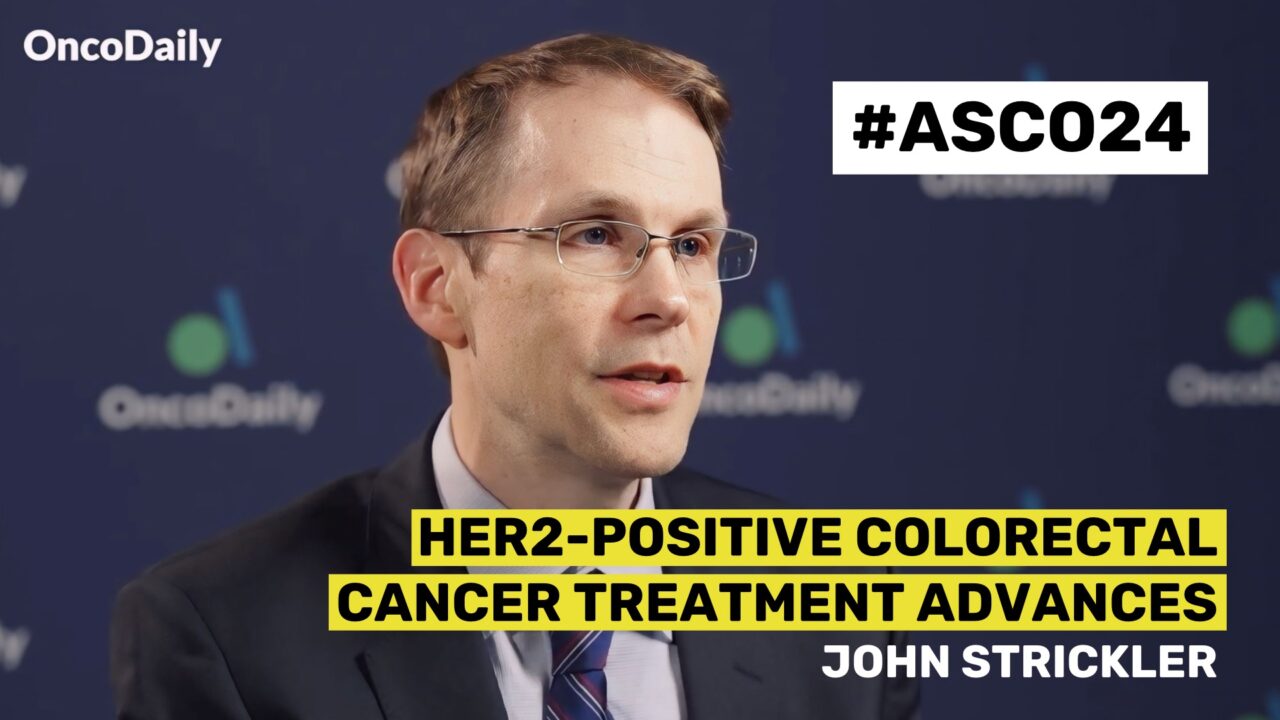The American Society of Clinical Oncology (ASCO) Annual Meeting is one of the largest and most prestigious conferences in the field of oncology. This year, the meeting took place from May 31 to June 4 in Chicago, Illinois. The event gathers oncologists, researchers, and healthcare professionals from around the world to discuss the latest advancements in cancer research, treatment, and patient care. Keynote sessions, research presentations, and panel discussions are typically part of the agenda, providing attendees with valuable insights into emerging trends and innovations in oncology.
This year, OncoDaily was at ASCO 2024 for the first time covering the meeting on-site. We had the pleasure of interviewing researchers who summarized the highlights of their work.
In this video, Dr. John Strickler from Duke University, shared insights on ‘Final results of a phase 2 study of tucatinib and trastuzumab for HER2-positive mCRC (MOUNTAINEER).‘
I’m John Strickler from Duke University. Here at the ASCO annual meeting, I presented results of the MOUNTAINEER trial for HER2-positive metastatic colorectal cancer. HER2 amplification is present in about 3% of patients with metastatic colorectal cancer.
Previously, we reported results of dasatinib and trastuzumab for patients with RAS-WILD type HER2-positive metastatic colorectal cancer. This study demonstrated favorable tolerability and significant clinical activity for the combination of dicatinib and trastuzumab in this patient population. At this meeting, we presented updated final results of the Mountaineer trial.
In this updated analysis, the response rate was 39%. Median duration of response was 15.2 months, which is the longest ever reported for an anti-HER2 combination in patients with HER2-positive colorectal cancer. Progression-free survival was 8.1 months, and median survival approached two years.
We also examined the safety and tolerability of this regimen. With longer-term follow-up, the combination remained safe and well-tolerated. The most common dicatinib-related adverse events were generally low-grade and manageable with supportive care.
We also noticed that there was a sizable group of patients that experienced a disproportionate benefit from this combination. We did some additional molecular and clinical pathologic analysis to try to understand the features of these patients. And we were surprised to note that many of these patients had lower levels of HER2 amplification.
Some had medium levels of HER2 expression, IHC2+, and some patients were heavily pretreated. We also noted that pretreatment-circulating tumor DNA revealed that many of these patients who were long-term responders had variants detected in blood that we would commonly associate with HER2 resistance, including RAS, BRAF, and PIK3CA mutations. So overall, very impressive data, really giving us reassuring data that this standard of care treatment option is safe and well-tolerated and highly effective for this patient population.
Thank you.
More videos and content from ASCO 2024 on OncoDaily.


